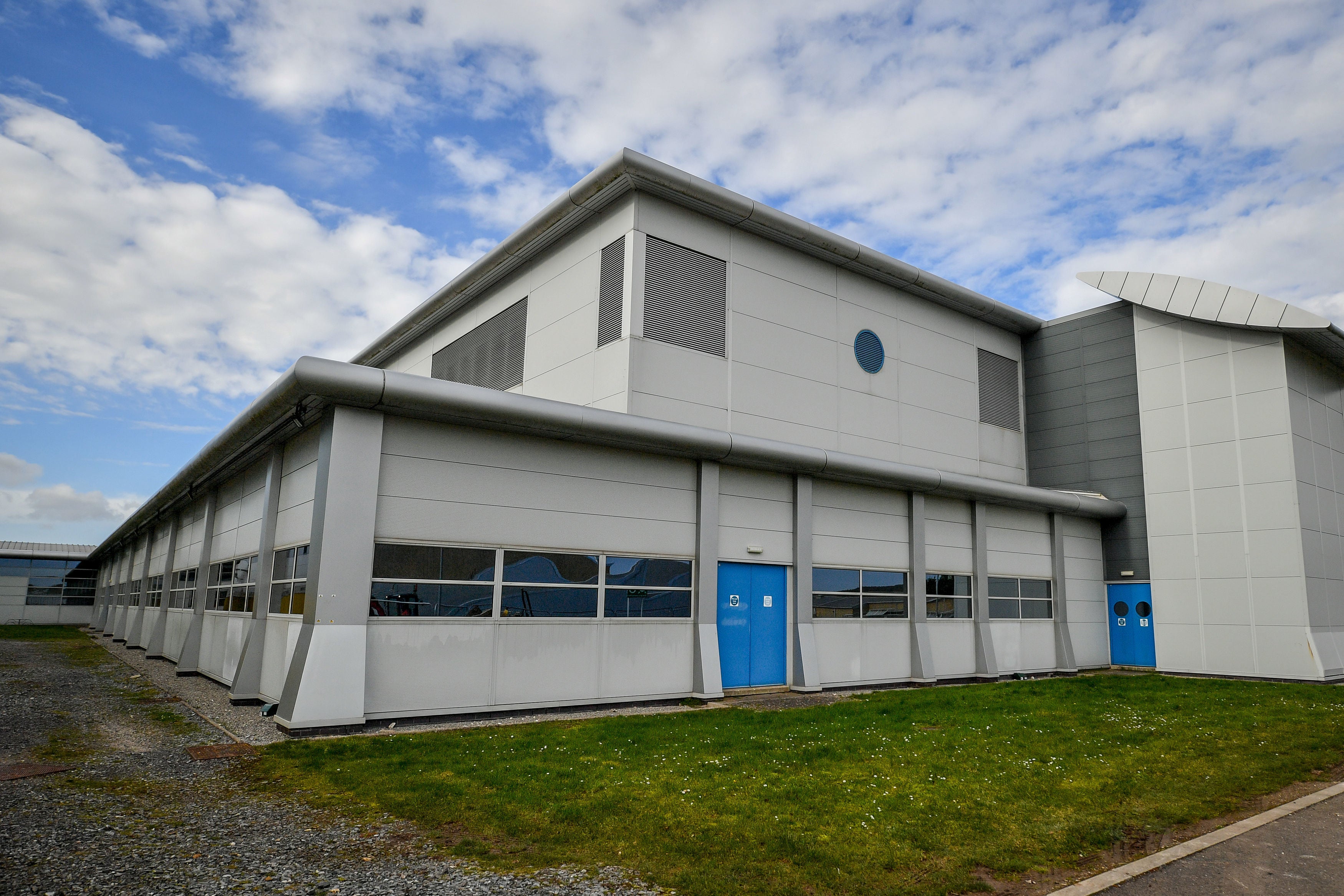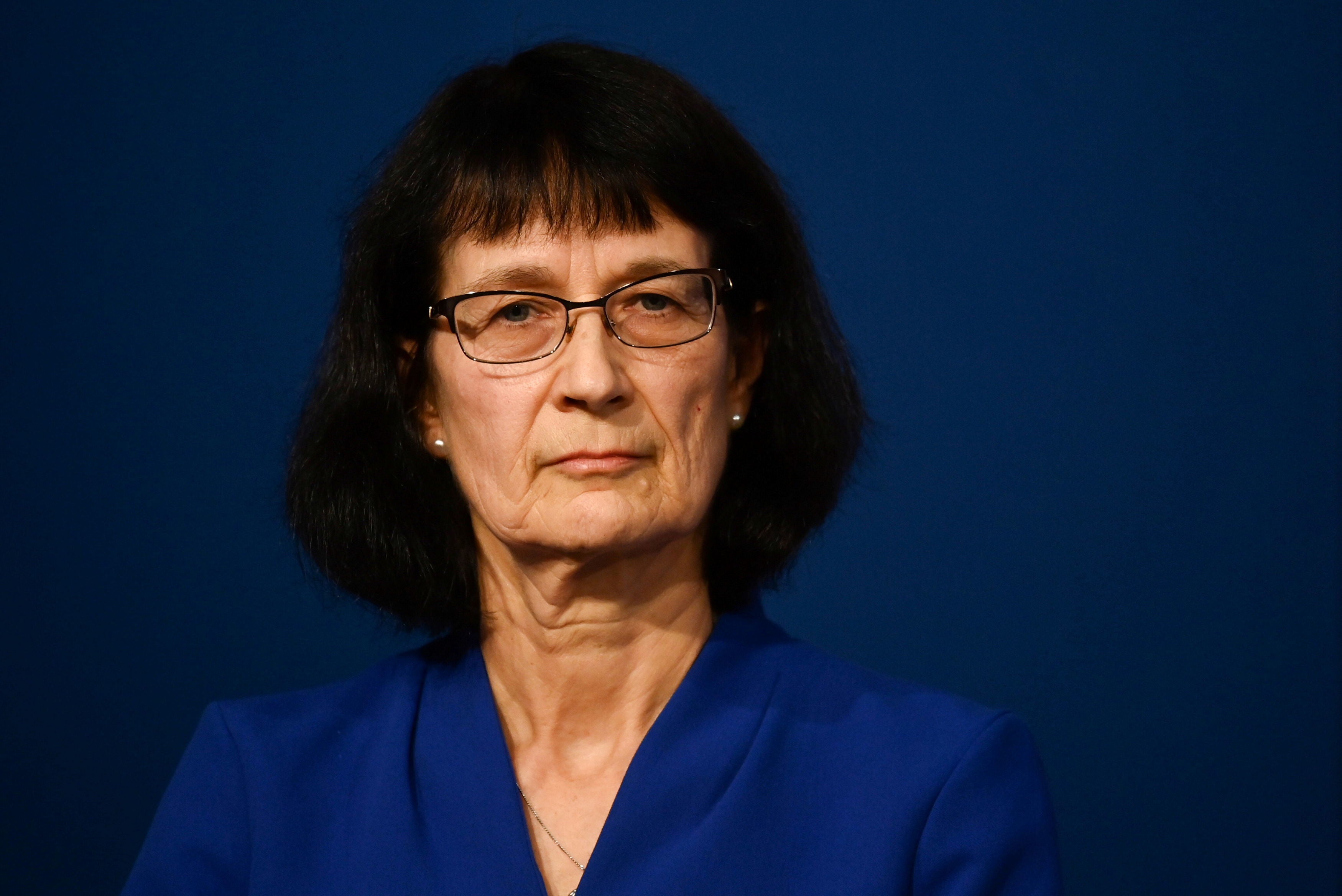What is ‘Disease X’? UK launches vaccine centre to help tackle new pandemic
It is hoped the site will help protect the UK from future threats
Your support helps us to tell the story
From reproductive rights to climate change to Big Tech, The Independent is on the ground when the story is developing. Whether it's investigating the financials of Elon Musk's pro-Trump PAC or producing our latest documentary, 'The A Word', which shines a light on the American women fighting for reproductive rights, we know how important it is to parse out the facts from the messaging.
At such a critical moment in US history, we need reporters on the ground. Your donation allows us to keep sending journalists to speak to both sides of the story.
The Independent is trusted by Americans across the entire political spectrum. And unlike many other quality news outlets, we choose not to lock Americans out of our reporting and analysis with paywalls. We believe quality journalism should be available to everyone, paid for by those who can afford it.
Your support makes all the difference.A state-of-the-art vaccine research facility, where scientists will work to ensure future pandemics are stopped in their tracks and do not cause the same disruption to everyday life as Covid-19, has been unveiled by the government.
It is also hoped the facility will help the UK tackle “disease X” by enhancing preparedness for yet-to-be-identified pathogens with pandemic potential.
“Disease X” is an unidentified and potential future pandemic caused by animal viruses capable of infecting humans and spreading globally.
Scientists from the UK are currently developing vaccines at the high-security Porton Down laboratory complex to prepare for this uncertain threat.
The Vaccine Development and Evaluation Centre (VDEC) is based at the UK Health and Security Agency (UKHSA) science and defence technology campus vaccine centre, near Salisbury in Wiltshire.
Live viruses will be kept on-site in specialist containment facilities, with researchers looking at pathogens that do not yet have a vaccine, or ones where immunisation could be improved, such as flu, mpox or hantavirus.

Elsewhere, scientists will test emerging Covid-19 jabs on new variants, target diseases such as tuberculosis (TB), and are currently running phase one clinical trials on a potential world-first jab against Crimean-Congo haemorrhagic fever, a tick-borne virus which is fatal in about 30 per cent of cases.
Professor Dame Jenny Harries, chief executive of UKHSA, said: “What we’re trying to do now is capture that really excellent work from Covid and make sure we’re using that as we go forward for any new pandemic threats.”
“What we’re trying to do here is ensure that we prepare so that if we have a new Disease X, a new pathogen, we have done as much of that work in advance as possible,” Prof Harries told Sky News.
“Hopefully we can prevent it [a pandemic]. But if we can’t and we have to respond, then we have already started developing vaccines and therapeutics to crack it.”
Scientists will look at viruses and bacteria they already know pose a threat and evaluate the effectiveness of existing vaccines against them.

Dame Jenny said the term “disease X” is applied as scientists “don’t know what the next pathogen will be that will cause a pandemic” but said the UK needs “to be ready”.
She added: “We don’t know what it is but we can get ready for some virus families.
“We can guess a little bit; we can look at changing the epidemiology of different viruses, we can look at changing climate and start to estimate, but we will never know 100 per cent.
“What we try to do here is keep an eye on the ones that we do know. For example with Covid, we are still here testing all the new variants with the vaccines that have been provided to check they are still effective.
“But we are also looking at how quickly we can develop a new test that would be used if a brand new virus popped up somewhere.”
We know that through scientific advancement, we could detect and control these spreads before they have the impact that Covid-19 had on our lives
The launch of the facility comes after the publication of the UKHSA’s three-year strategy.
The blueprint outlines how the organisation will prepare for, and respond to, future hazards, which includes improving health outcomes via vaccines.
Prof Harries believes climate change and population shifts are making another pandemic more likely.
She told Sky News: “What we’re seeing is a rising risk globally.
“Some of that is because of things like urbanisation where you may get virus jumping into humans [living close-by], as we’ve seen with bird flu.
“And some of it is because of climate change where you get things like ticks and mosquitoes moving to where it was previously cold and is now becoming increasingly warm.
“So this is a growing risk agenda. But it’s one we can use our science actively to prevent human impact.”
The UK’s preparedness for a pandemic came under the spotlight earlier this summer as part of the first public hearings in the Covid-19 Inquiry.
It heard that previous governments had focused too much on preparing for an influenza pandemic rather than other types of pathogens, with former prime minister David Cameron admitting it was a “mistake”.
Professor Isabel Oliver, chief scientific officer of UKHSA, said: “We know that through scientific advancement, we could detect and control these spreads before they have the impact that Covid-19 had on our lives.
“It’s not easy, but we know that if we strengthen surveillance and if we accelerate the development of diagnostics, vaccines and therapeutics, we could do so much better.
“We need to be prepared for all threats, including those that have not been detected yet.”
The most important lesson learnt is that the only way to beat a pandemic is by actively seeking and delivering new vaccines and treatments, the sooner, the better
The VDEC will also bolster the UK’s contribution to the 100 Days Mission, a global goal set by the G7 in 2021 with the aim of deploying a vaccine against any new pandemic threat within 100 days of identification.
Prof Oliver said she is “proud that the UK has embraced this mission” and said we need to be at the “forefront” of advancements.
“It’s not about staying where we are, it’s about continuing to advance and evolve,” she added.
Health secretary Steve Barclay said: “This new centre cements the UK’s global position spearheading pandemic preparedness, vaccine development, and scientific discovery.
“Hundreds of the world’s leading scientists are already in the centre working on vaccines against potential global health threats to protect the UK and save lives across the world.
“This state-of-the-art complex will also help us deliver on our commitment to produce new vaccines within 100 days of a new threat being identified.”
Janet Valentine, executive director for innovation and research policy at the Association of the British Pharmaceutical Industry, said the Covid-19 pandemic “taught us that through extraordinary interventions and public sacrifice, we could slow down the spread of the virus, but not stop infection”.
“This came with huge economic and personal cost,” she added. “But the most important lesson learnt is that the only way to beat a pandemic is by actively seeking and delivering new vaccines and treatments, the sooner, the better.”
Currently, bird flu is considered the primary risk for a pandemic. The Royal Society for the Protection of Birds reports that over this summer, a more aggressive variant of the H5N1 virus has caused the death of over 30,000 seabirds across the UK due to its global spread. Additionally, there are indications of limited transmission among certain mammals.
Four individuals employed on UK poultry farms have tested positive for the virus, although their symptoms were mild.
The UK Health Security Agency [UKHSA] has initiated surveillance of individuals closely interacting with birds to determine if the virus can be transmitted without causing noticeable symptoms.
Subscribe to Independent Premium to bookmark this article
Want to bookmark your favourite articles and stories to read or reference later? Start your Independent Premium subscription today.



